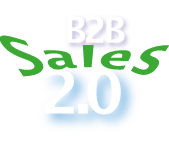By Christopher Rollyson  To kick off Q3 2012, CSRA unveiled a new web presence that introduces new features to educate executives about social business—and creates one source to access CSRA thought leadership and to interact with us. Existing blogs will remain up, but their roles and functionality have been tweaked. Read on for a summary of the changes and how you can use them to raise your game in social business. Continue reading CSRA Integrates Its Blogs & Websites On WordPress: New B2B Features To kick off Q3 2012, CSRA unveiled a new web presence that introduces new features to educate executives about social business—and creates one source to access CSRA thought leadership and to interact with us. Existing blogs will remain up, but their roles and functionality have been tweaked. Read on for a summary of the changes and how you can use them to raise your game in social business. Continue reading CSRA Integrates Its Blogs & Websites On WordPress: New B2B Features
By Christopher Rollyson  I have written often about various facets of social business disruption, which usually causes organizations angst because they have to learn to change how they do things. On a happier note, nonprofits and NGOs, long accustomed to being (relatively) disadvantaged do-gooders grateful for commercial bodies’ largesse, actually have more of an advantage in social business than commercial firms (“brands”). I have written often about various facets of social business disruption, which usually causes organizations angst because they have to learn to change how they do things. On a happier note, nonprofits and NGOs, long accustomed to being (relatively) disadvantaged do-gooders grateful for commercial bodies’ largesse, actually have more of an advantage in social business than commercial firms (“brands”).
In this context, government usually lies between nonprofits and brands because it’s not commercially focused (advantage), but it rarely considers individuals in meaningful ways (disadvantage). Here I’ll lay out the rationale for these claims before giving some practical pointers for unlocking social business potential by understanding the social good of your business. Brands and governments, you can learn from this, too. Continue reading How Nonprofits & NGOs Can Press Their Home Court Advantage in Social Business [updated]
By Christopher Rollyson  The power of specialization in social networks explains how most executives and knowledge workers are not yet in synch with the emerging Knowledge Economy and its disruption of career assumptions. One of the most powerful career beliefs of the 20th century is especially out of place in the 21st century: generalists are more flexible and employable. Read on for a brief explanation of key Knowledge Economy career trends and specific action steps you can take to expand opportunity for yourself, your colleagues and your family. Continue reading The Power of Career Specialization in Social Networks The power of specialization in social networks explains how most executives and knowledge workers are not yet in synch with the emerging Knowledge Economy and its disruption of career assumptions. One of the most powerful career beliefs of the 20th century is especially out of place in the 21st century: generalists are more flexible and employable. Read on for a brief explanation of key Knowledge Economy career trends and specific action steps you can take to expand opportunity for yourself, your colleagues and your family. Continue reading The Power of Career Specialization in Social Networks
By Christopher Rollyson  Fear Is B2B Sales’ Unusual Trust and Relationship Accelerator when salespeople know how to understand it and earn trust through empathy. Fear Is B2B Sales’ Unusual Trust and Relationship Accelerator when salespeople know how to understand it and earn trust through empathy.
Having been in management consulting for over 25 years, I agree with Charles H. Green that fear is the core driver of organizations’ and negotiation partners’ “difficult” behavior—and that it offers B2B providers a reliable opportunity to outmaneuver competitors by building trust where they can’t. As usual, he is right on the money in Find the Fear and Swim Upstream to Trust: “Fear is the main driver of … passive aggressive, secretive, avoiding, combative, resentful, backstabbing, gossiping [behavior]…”
But fear can be a gold mine. In my experience, fearful clients or prospects are afraid of a personal or organizational situation, not you. Therefore, their fear and “difficult” behavior is a barrier to all potential providers, which can be your opportunity: by working with the client/prospect to mitigate the root cause, you can develop a high level of trust quickly. Moreover, fear tends to be contagious, and most people, including competitors, avoid it, which can add to your advantage.
By the way, I am not suggesting that you put fear at the center of your business development approach! Rather, I am assuming that your pre-engagement and qualification procedures have shown some green lights before you start detecting unusual fear-based behavior during ongoing discussions. Continue reading Fear Is B2B Sales’ Unusual Trust and Relationship Accelerator
By Christopher Rollyson Top B2B Salesperson Trust Killers Revealed discusses the results of targeted B2B sales research I conducted on LinkedIn and features comments from many survey respondents.

One of the key takeaways of The Dynamics of Change video was trust’s importance to B2B prospects’ risk management practices. To explore trust’s importance to B2B sales, I surveyed dozens of seasoned B2B sales executives, including clients and salespeople, in this LinkedIn Poll. The results reveal the nuances of trust and how salespeople must constantly challenge themselves to focus on trust, relationship and execution. For example, respondents said that too many salespeople fumble the ball on fundamentals.
B2B sales is a challenging proposition in normal times, but the challenging global economic malaise has only made budgets tighter and sales more daunting. In large B2B deals, salespeople have to build a significant level of trust with prospects before any deal can be done. This analysis aims to help firm executives and sales leaders improve performance by increasing trust with prospects and clients.
Continue reading Top B2B Salesperson Trust Killers Revealed
By Christopher Rollyson How Brands Cut Their Exposure to Facebook Business Risk shows how brands can reduce the risks of depending on Facebook too much.

In the Facebook As Investment trilogy, I have analyzed several dimensions of investing in Facebook and raised my doubts about the company’s management and direction. In Part Three, I’ll address how brand executives can insulate themselves from Facebook’s—or any platform’s—fortunes by moving to make their relationships and networks portable. By making and managing investments carefully, brands’ relationships will endure regardless of platforms’ destinies.
By the way, Part One examined how Facebook’s trust gap would make it difficult for Facebook to fully monetize its considerable assets. Part Two analyzed Facebook as a social platform and revealed that it had no competitive threats from other pureplays; rather, the risk was that the whole pureplay category would lose its dominance in 3-5 years. Continue reading How Brands Cut Their Exposure to Facebook Business Risk
By Christopher Rollyson  Facebook As Investment: No Replacement for Facebook But Pureplays Will Fade shows how the fading importance of social networks is the threat—not competitors. In Part One of the Facebook As Investment trilogy, I argued that Facebook had a signifiant trust gap with users that would inhibit its ability to monetize its most unique and valuable assets, and that the trust gap was recently compounded by its “IPO irregularities.” In Part Two, I’ll take a different tack and analyze the investment prospects of Facebook-the-platform. Part Three advises executives on how to isolate their social business investments from Facebook business risks. Facebook As Investment: No Replacement for Facebook But Pureplays Will Fade shows how the fading importance of social networks is the threat—not competitors. In Part One of the Facebook As Investment trilogy, I argued that Facebook had a signifiant trust gap with users that would inhibit its ability to monetize its most unique and valuable assets, and that the trust gap was recently compounded by its “IPO irregularities.” In Part Two, I’ll take a different tack and analyze the investment prospects of Facebook-the-platform. Part Three advises executives on how to isolate their social business investments from Facebook business risks.
In its favor, Facebook will not have to worry about being “displaced” by another social network the way that it displaced MySpace. In the near term, this lack of competition will give the company some breathing room. However, a more daunting threat awaits, the end of the social network pureplay, but that is 3-5 years out.
Nonetheless, the fate of pureplays should be top-of-mind for serious Facebook investors: to produce the fabulous returns that current investors expect, Facebook will have to move far beyond adverts. Continue reading Facebook As Investment: No Replacement for Facebook But Pureplays Will Fade
By Christopher Rollyson  Facebook As Investment: How Trust Issues Block Its Best Path to Wealth describes why Facebook needs to change its orientation to users to unlock its full wealth potential. Over the past month, it has been de rigeur to comment on Facebook’s IPO and “quality” as an investment, but I decided to hold back until I could free a window to consider the matter in sufficient detail. The result is the “Facebook As Investment” trilogy, of which this is the first part. Part Two analyzes Facebook-the-platform’s investment prospects. Part Three advises executives on how to isolate their social business investments from Facebook business risks. Facebook As Investment: How Trust Issues Block Its Best Path to Wealth describes why Facebook needs to change its orientation to users to unlock its full wealth potential. Over the past month, it has been de rigeur to comment on Facebook’s IPO and “quality” as an investment, but I decided to hold back until I could free a window to consider the matter in sufficient detail. The result is the “Facebook As Investment” trilogy, of which this is the first part. Part Two analyzes Facebook-the-platform’s investment prospects. Part Three advises executives on how to isolate their social business investments from Facebook business risks.
I did not buy into Facebook and do not plan to invest in its stock. I think it is a fantastic social venue and platform in which to connect with people (“stakeholders,” friends, associates..)—personally and for enterprises and brands. However, as I’ll argue here, Facebook‘s Achilles heel is a significant trust gap with most of its stakeholders. Its trust gap will make it difficult for Facebook management to fully monetize its most unique asset, its users’ social graphs. Continue reading Facebook As Investment: How Trust Issues Block Its Best Path to Wealth
By Christopher Rollyson  My predictions from the 1990s and beyond about the disruption of “careers” and “work” have been coming true at an increasing pace, so here I’ll offer a quick retrospective of key trends as well as numerous how-to resources for using these disruptions to your advantage. Disruptions change the rules. Although most people don’t like “the rules” at times, we all take comfort in them because we have a clue about how to manage and get what we want. No one likes to feel clueless, but that’s how disruption causes most people to feel, so they try to avoid it. However, by facing the world head on and understanding the profound economic and social changes that are happening, you can see where the proverbial puck will be and skate there before most other people. Let’s go! Continue reading Executive Career & Job Search Resources My predictions from the 1990s and beyond about the disruption of “careers” and “work” have been coming true at an increasing pace, so here I’ll offer a quick retrospective of key trends as well as numerous how-to resources for using these disruptions to your advantage. Disruptions change the rules. Although most people don’t like “the rules” at times, we all take comfort in them because we have a clue about how to manage and get what we want. No one likes to feel clueless, but that’s how disruption causes most people to feel, so they try to avoid it. However, by facing the world head on and understanding the profound economic and social changes that are happening, you can see where the proverbial puck will be and skate there before most other people. Let’s go! Continue reading Executive Career & Job Search Resources
By Christopher Rollyson  Based on numerous executive conversations I’ve had over the past few months, I’m struck by the staying power of 20th century “communications” rules, which still govern many brands today. Therefore, I’ll reveal hidden assumptions that lurk in too many boardrooms in the desire that you root them out before your rivals, so you can outmaneuver them before they disrupt you. Based on numerous executive conversations I’ve had over the past few months, I’m struck by the staying power of 20th century “communications” rules, which still govern many brands today. Therefore, I’ll reveal hidden assumptions that lurk in too many boardrooms in the desire that you root them out before your rivals, so you can outmaneuver them before they disrupt you.
20th century success formulas offer very thin ice on which to skate, and many brands will have a cold awakening. Periods of disruption make assumptions lethal because disruptions change past rules or invalidate them completely, which leads executives and brand stewards astray. In this brief treatement of a complex subject, I’ll show why executives unwittingly sabotage social business’s network-based communications by using mass communications principles.
Continue reading Networks vs Mass Communications: Using Disruption to Compete
|
|
 To kick off Q3 2012, CSRA unveiled a new web presence that introduces new features to educate executives about social business—and creates one source to access CSRA thought leadership and to interact with us. Existing blogs will remain up, but their roles and functionality have been tweaked. Read on for a summary of the changes and how you can use them to raise your game in social business. Continue reading CSRA Integrates Its Blogs & Websites On WordPress: New B2B Features
To kick off Q3 2012, CSRA unveiled a new web presence that introduces new features to educate executives about social business—and creates one source to access CSRA thought leadership and to interact with us. Existing blogs will remain up, but their roles and functionality have been tweaked. Read on for a summary of the changes and how you can use them to raise your game in social business. Continue reading CSRA Integrates Its Blogs & Websites On WordPress: New B2B Features






